Hypothyroidism can occur in two forms – subclinical (hidden) and full-blown (clinical).
Subclinical hypothyroidism is the mildest form of the disease, with few, hardly noticeable symptoms. In adults, it can only be a depressed mood, chronic fatigue, and even depression. It is difficult to attribute these symptoms of hypothyroidism, and ignoring them can lead to the development of the disease to the full-blown phase.
Subclinical hypothyroidism in young children is characterized by: long-term jaundice in newborns and mental and physical retardation of the child's development – growth disorders, trouble eating, cold, flaky skin, or hoarse voice. In older children, growth retardation, dry and brittle hair, intolerance to cold, nagging headaches, and slow speech can be noticed.
Full-blown hypothyroidism![]() manifests itself in very different ways. That is why it is significant to present all symptoms to the doctor and to conduct appropriate tests to verify the level of hormones in the body. Patients often complain of weight gain, frequent constipation, shortness of breath, muscle stiffness, and sore joints. Hypothyroidism can also cause problems with maintaining pregnancy, decreased libido, and impotence.
manifests itself in very different ways. That is why it is significant to present all symptoms to the doctor and to conduct appropriate tests to verify the level of hormones in the body. Patients often complain of weight gain, frequent constipation, shortness of breath, muscle stiffness, and sore joints. Hypothyroidism can also cause problems with maintaining pregnancy, decreased libido, and impotence.
Poor memory, difficulty concentrating, headaches, and feeling bitterly cold (even on hot days) are also classified as symptoms of hypothyroidism. The skin dries out and becomes rough, which is especially visible on the elbows and knees. Hypothyroidism also affects the hair – it becomes dry and brittle, and eyebrows thin significantly. The patient's face becomes puffed up with swollen eyelids and the so-called second chin.
The thyroid![]() is a small gland. It is part of the neck.
is a small gland. It is part of the neck.
The thyroid gland is one of the endocrine glands. Its main task is to produce hormones. The thyroid gland's tiny follicles are responsible for producing them. These follicles also store hormone molecules and release the right amount of hormones into the blood per the body's current needs. The thyroid gland produces triiodothyronine and thyroxine.
In addition to follicular cells![]() , there are also so-called C cells in the thyroid gland. Their task is to produce an additional thyroid hormone – calcitonin. Calcitonin is responsible for regulating the body's calcium and phosphate metabolism.
, there are also so-called C cells in the thyroid gland. Their task is to produce an additional thyroid hormone – calcitonin. Calcitonin is responsible for regulating the body's calcium and phosphate metabolism.
However, hypothyroidism is primarily associated with T3 and T4 deficiencies. Calcitonin deficiency usually does not cause serious consequences because the calcium and phosphate balance can also be regulated by other hormones.
Like other endocrine glands, the thyroid gland does not “decide” on its own about hormonal regulation in our bodies. The regulation of thyroid function depends on many factors. The main supervision over the thyroid gland is performed by two other endocrine system organs – the hypothalamus and the pituitary gland![]() .
.
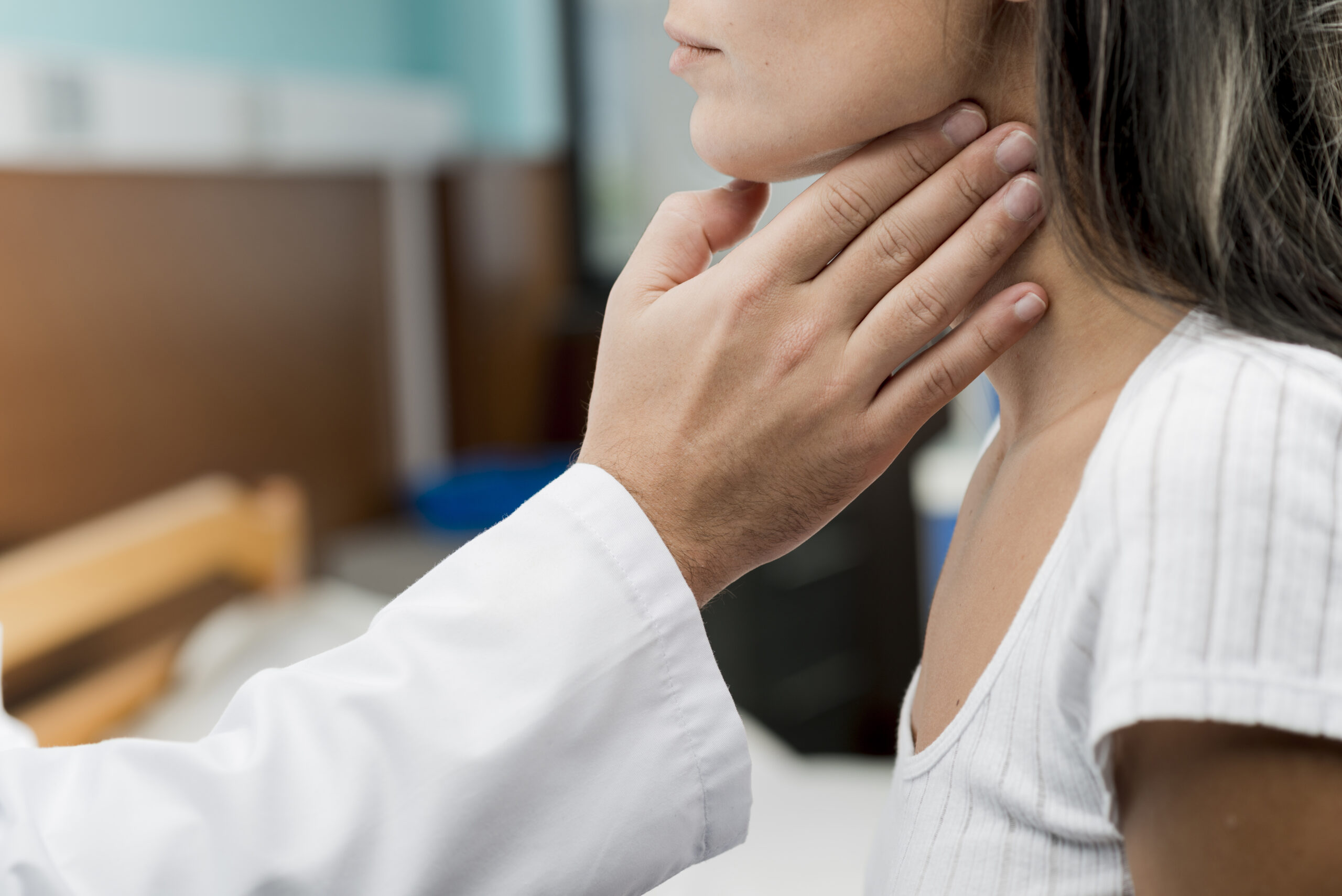
The hypothalamus and the pituitary gland, through their hormones (thyrotropin TRH and thyrotropin TSH), stimulate or inhibit the activity of the thyroid gland.
By analyzing the hormone levels in the blood, we can determine the current condition of the thyroid gland. Testing the TSH level is a simple way to monitor thyroid function.
Thyroid hormones![]() , after being released into the blood, go to every tissue of our body. T3 and T4 support the metabolism of all organs – they enable growth and stimulate cell activity.
, after being released into the blood, go to every tissue of our body. T3 and T4 support the metabolism of all organs – they enable growth and stimulate cell activity.
Thyroid hormones support the absorption and transformation of nutrients. Thanks to them, oxygen consumption and the burning of energy substances inside the cells increase.
They regulate heart rate, intestinal motility, reproductive system function, kidney filtration function, and the transmission of impulses in the nervous system. Thyroid hormones can also affect our mental state.
Their appropriate concentration is crucial during the growth and development of the body. Without thyroid hormones, proper development and maturation of all organs would be impossible.
When for some reason the thyroid gland produces too few hormones compared to the body's needs, we talk about hypothyroidism![]() .
.
There are various causes of hypothyroidism![]() . When the thyroid gland is damaged, it leads to primary hypothyroidism. On the other hand, if there are abnormalities due to decreased stimulation from the pituitary gland, resulting in lower TSH production, it is secondary hypothyroidism.
. When the thyroid gland is damaged, it leads to primary hypothyroidism. On the other hand, if there are abnormalities due to decreased stimulation from the pituitary gland, resulting in lower TSH production, it is secondary hypothyroidism.
The factors of primary hypothyroidism include, among others, Hashimoto's disease – chronic autoimmune thyroiditis, when antibodies against enzymes naturally occurring in the thyroid gland are activated in the body. Primary hypothyroidism is also affected by total or partial thyroidectomy, irradiation of the neck area in cancer treatment, and iodine deficiency![]() in the environment.
in the environment.
Secondary hypothyroidism occurs as a result of damage or a tumor of the pituitary gland.
Rarer causes of hypothyroidism include:
The doctor, to confirm or rule out hypothyroidism, orders hormonal tests![]() . Initially, the patient should test the TSH concentration in the blood. If the TSH turns out to be above the upper limit, it is necessary to measure free thyroxine (fT4). If elevated TSH is accompanied by low fT4, it means that we are dealing with primary hypothyroidism, which is associated with thyroid disease, not pituitary.
. Initially, the patient should test the TSH concentration in the blood. If the TSH turns out to be above the upper limit, it is necessary to measure free thyroxine (fT4). If elevated TSH is accompanied by low fT4, it means that we are dealing with primary hypothyroidism, which is associated with thyroid disease, not pituitary.
Next, the doctor tries to determine where the disease came from. To facilitate this task, they perform an ultrasound![]() of the thyroid gland (like Hashimoto's, it is manifested by a reduced size of the thyroid gland and low echogenicity).
of the thyroid gland (like Hashimoto's, it is manifested by a reduced size of the thyroid gland and low echogenicity).
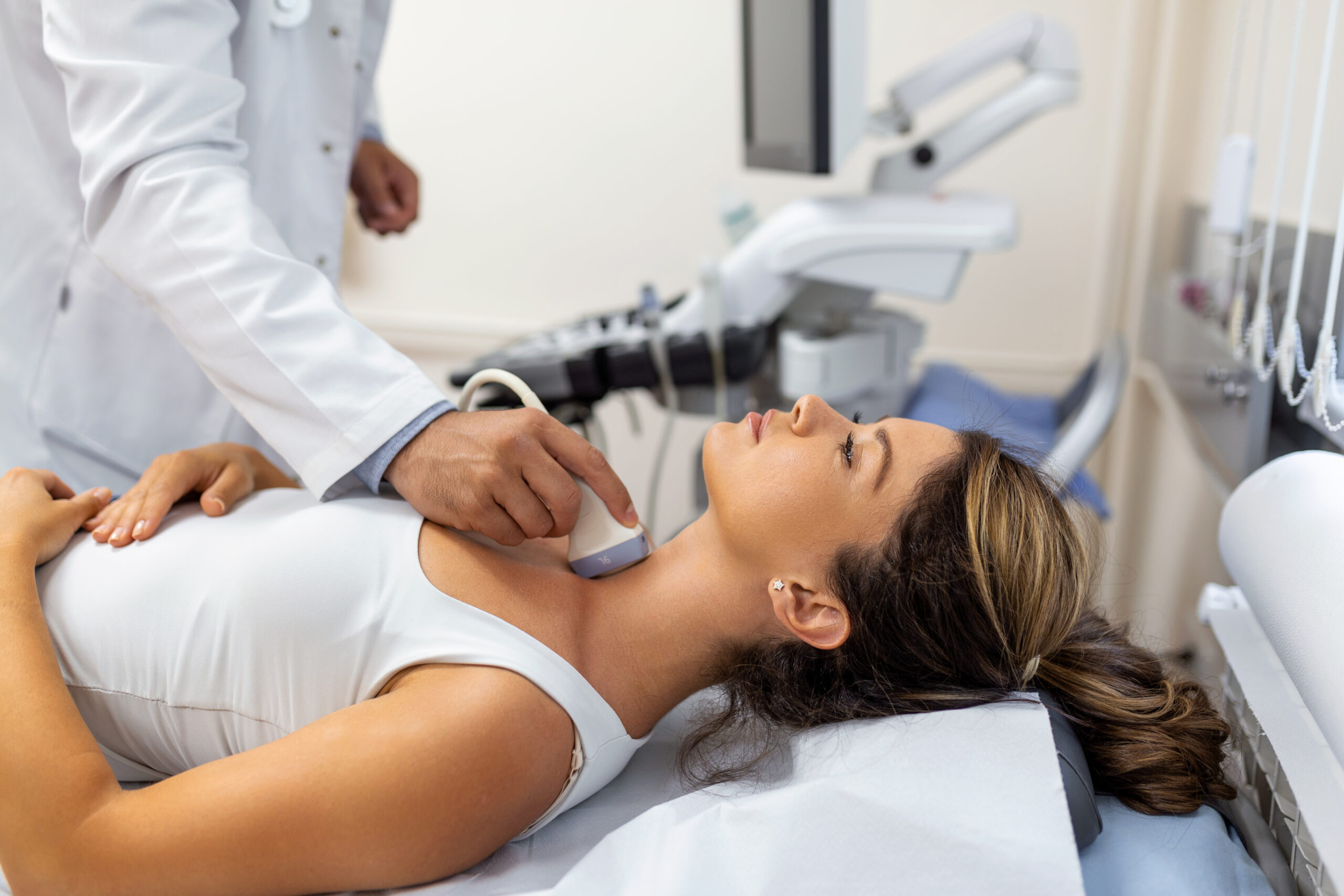
Treatment of hypothyroidism consists of continuous management of thyroid hormones![]() . Their amount is selected individually. Once hormone levels are restored to normal, the body begins to function correctly. In hypothyroidism, hospitalization is rarely required – usually, treatment is carried out on an outpatient basis.
. Their amount is selected individually. Once hormone levels are restored to normal, the body begins to function correctly. In hypothyroidism, hospitalization is rarely required – usually, treatment is carried out on an outpatient basis.
The situation is slightly different when iodine deficiency is responsible for the disease – then supplementing![]() is advised.
is advised.
Hypothyroidism is a chronic disease. In most cases, it requires lifelong treatment. Correctly diagnosed and treated hypothyroidism is not associated with health complications.
Failure to adjust the doses of thyroid hormones or abandonment of treatment may lead to irreversible consequences. Treating hypothyroidism in pregnant women![]() is crucial for healthy fetal development.
is crucial for healthy fetal development.
The diet used in hypothyroidism should primarily contain large amounts of iodine and protein. Iodine is an element significant for the proper functioning of the body. It is involved in the production of thyroid hormones that affect growth and proper metabolism.
If you are gaining weight quickly, have dry skin, and are constantly cold – see an endocrinologist because you probably have hypothyroidism.
The human body needs about 160 mcg of iodine daily (220-290 mcg during pregnancy and breastfeeding). We can supply iodine by inhalation or from food (fish and seafood are its natural source).
Do not supplement iodine prophylactically or in the absence of medical indications. Too much of this element in the body can cause medical problems.
The diet![]() of people suffering from hypothyroidism should include not only iodine but also:
of people suffering from hypothyroidism should include not only iodine but also:
Hyperthyroidism![]() is the excessive secretion of hormones by this gland. It can be primary (disorders in the thyroid itself) or secondary (overproduction of TSH by pituitary adenoma).
is the excessive secretion of hormones by this gland. It can be primary (disorders in the thyroid itself) or secondary (overproduction of TSH by pituitary adenoma).
The main causes of hyperthyroidism are Graves' disease and toxic nodular goiter. The first is an autoimmune disease in which thyroid-stimulating antibodies are formed. In turn, toxic nodular goiter is a result of the spontaneous activation of thyroid cells.
Rarer causes include thyroid adenoma, excess iodine intake, and pregnancy. Increased release of hormones accumulated in the thyroid gland may be the result of inflammation of this gland, e.g., in the acute phase of Hashimoto's disease, eventually leading to hypothyroidism.
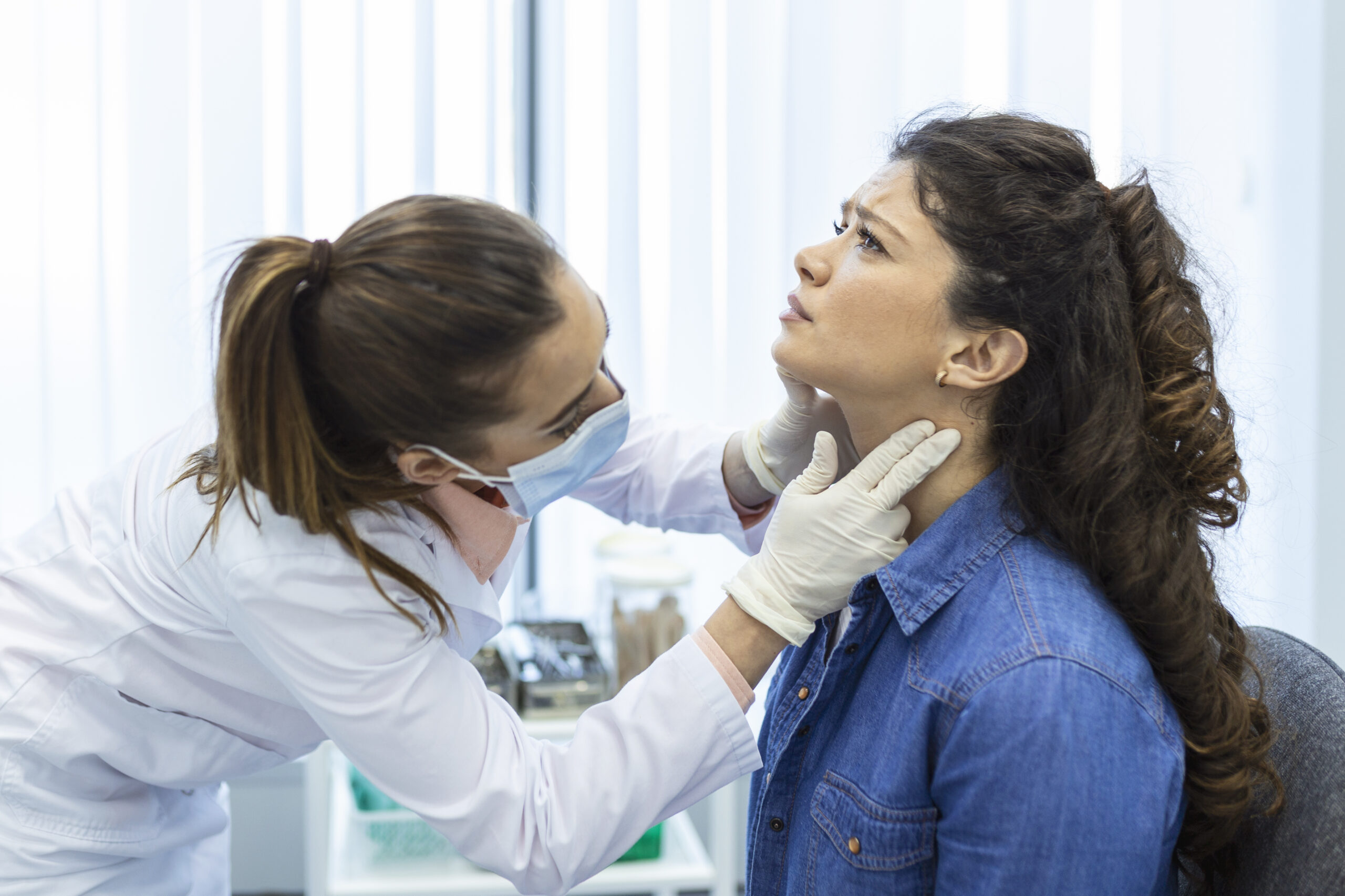
The symptoms of hyperthyroidism are quite characteristic, but sometimes the disease may be asymptomatic.
The most common symptoms![]() include:
include:
A patient with hyperthyroidism may experience anxiety, depression![]() , and fear. Irritability, tearfulness, psychomotor agitation, difficulty concentrating, and insomnia may occur. Sometimes psychotic symptoms similar to those observed in schizophrenia or bipolar affective disorder may also occur.
, and fear. Irritability, tearfulness, psychomotor agitation, difficulty concentrating, and insomnia may occur. Sometimes psychotic symptoms similar to those observed in schizophrenia or bipolar affective disorder may also occur.
Typical for hyperthyroidism is warm, pink, delicate, and excessively smooth skin![]() (so-called velvet skin), which is moist due to increased sweating. Patients often complain of falling out, thin and brittle hair, as well as brittle nails and separation of the nail plate from its bed (the so-called onycholysis).
(so-called velvet skin), which is moist due to increased sweating. Patients often complain of falling out, thin and brittle hair, as well as brittle nails and separation of the nail plate from its bed (the so-called onycholysis).
In addition, symptoms such as pitting edema (a painless, diffuse or nodular, red-orange thickening of the skin on the front surface of the lower legs) and acropachya (painful thickening and rounding of the fingers) are also typical of Graves' disease.
Laboratory blood tests are of fundamental importance in the diagnosis of hyperthyroidism![]() . First, the concentration of TSH is determined, which is the most sensitive indicator of thyroid function – its normal level usually excludes the presence of disorders. Then, fT4 and sometimes fT3 are tested, i.e., active forms of hormones not bound to blood proteins (free). High TSH and fT4 concentrations indicate secondary hyperthyroidism, while primary hyperthyroidism is characterized by high fT4 and low TSH, which is a negative feedback effect.
. First, the concentration of TSH is determined, which is the most sensitive indicator of thyroid function – its normal level usually excludes the presence of disorders. Then, fT4 and sometimes fT3 are tested, i.e., active forms of hormones not bound to blood proteins (free). High TSH and fT4 concentrations indicate secondary hyperthyroidism, while primary hyperthyroidism is characterized by high fT4 and low TSH, which is a negative feedback effect.
Detection of autoantibodies allows for confirming the immunological background of hyperthyroidism – antibodies against TSH receptors are typical for Graves' disease. Hyperthyroidism can also affect the results of other tests, e.g., lowering cholesterol and triglycerides.
The second group of significant tests is imaging tests. All patients should undergo an ultrasound examination (USG) to detect enlargement of the gland and the presence of nodules. Another test is thyroid scintigraphy, which consists in assessing the gland's uptake of the given radioactive isotope (usually iodine), which allows one to determine the nature of the nodules. To confirm or exclude the malignant nature of a thyroid nodule (thyroid cancer), a fine-needle biopsy (FNA) is performed.
The choice of the method of treatment![]() depends on the cause of hyperthyroidism, its course, age, and the decision of the patient. Taking medication can be the primary form of therapy or preparation for radioiodine therapy
depends on the cause of hyperthyroidism, its course, age, and the decision of the patient. Taking medication can be the primary form of therapy or preparation for radioiodine therapy![]() or surgical treatment
or surgical treatment![]() .
.
The basic group of drugs is thyrostatics![]() which inhibit the synthesis and secretion of thyroid hormones. However, these drugs may have various side effects, including skin reactions, nausea and vomiting, and liver or bone marrow damage.
which inhibit the synthesis and secretion of thyroid hormones. However, these drugs may have various side effects, including skin reactions, nausea and vomiting, and liver or bone marrow damage.
A significant group of drugs is also beta-blockers![]() , which counteract the symptoms of hyperthyroidism (palpitations, sweating, hand tremors). Radioactive iodine treatment consists of the administration of an isotope of iodine that accumulates in the thyroid gland and emits radiation that damages the cells of the thyroid gland, with little effect on other organs.
, which counteract the symptoms of hyperthyroidism (palpitations, sweating, hand tremors). Radioactive iodine treatment consists of the administration of an isotope of iodine that accumulates in the thyroid gland and emits radiation that damages the cells of the thyroid gland, with little effect on other organs.
Surgical removal of part or all of the gland (thyroidectomy) is an alternative to radioiodine treatment, and an absolute indication for its use is a malignant change in the thyroid gland.
Table of Contents
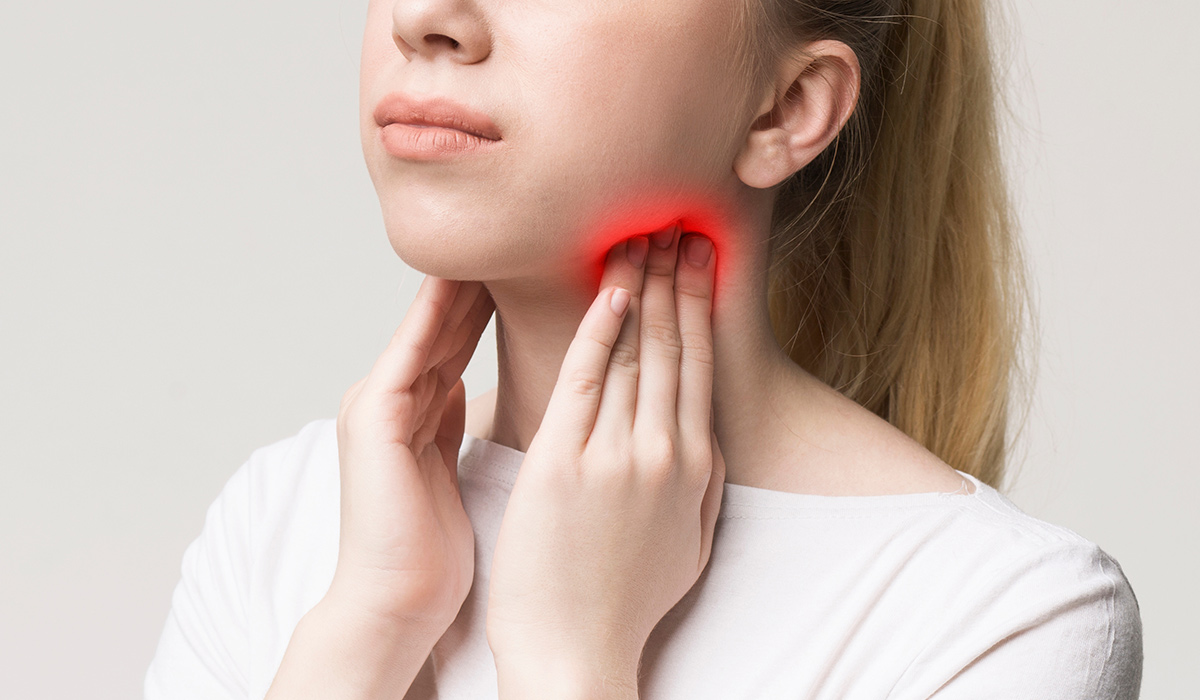
Hyperthyroidism is a condition in which the body produces too many hormones. This causes various symptoms and complications. Check out… read more »

The thyroid is an endocrine gland. What hormones does it produce? Learn what are most popular thyroid diseases and what's… read more »
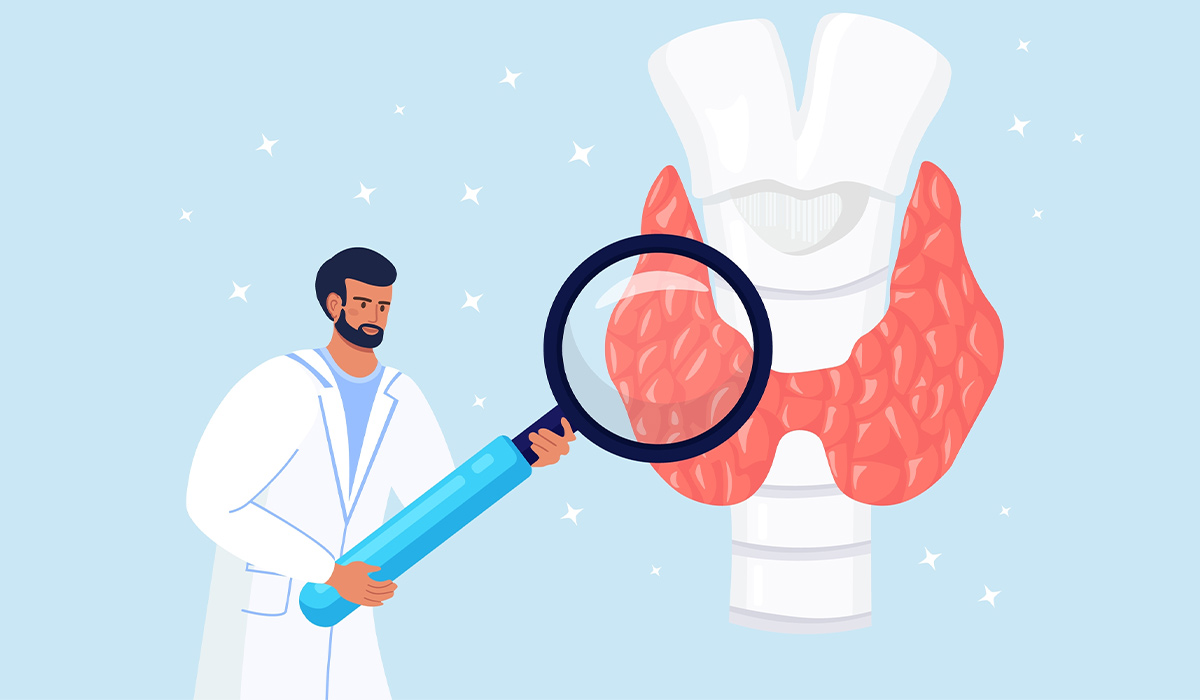
The thyroid is a small organ whose hormones regulate the body's metabolism. Check what are the signs of thyroid problems.… read more »

Also known as Hashimoto's thyroiditis and chronic autoimmune thyroiditis, Hashimoto's disease is an autoimmune condition that causes the immune system… read more »
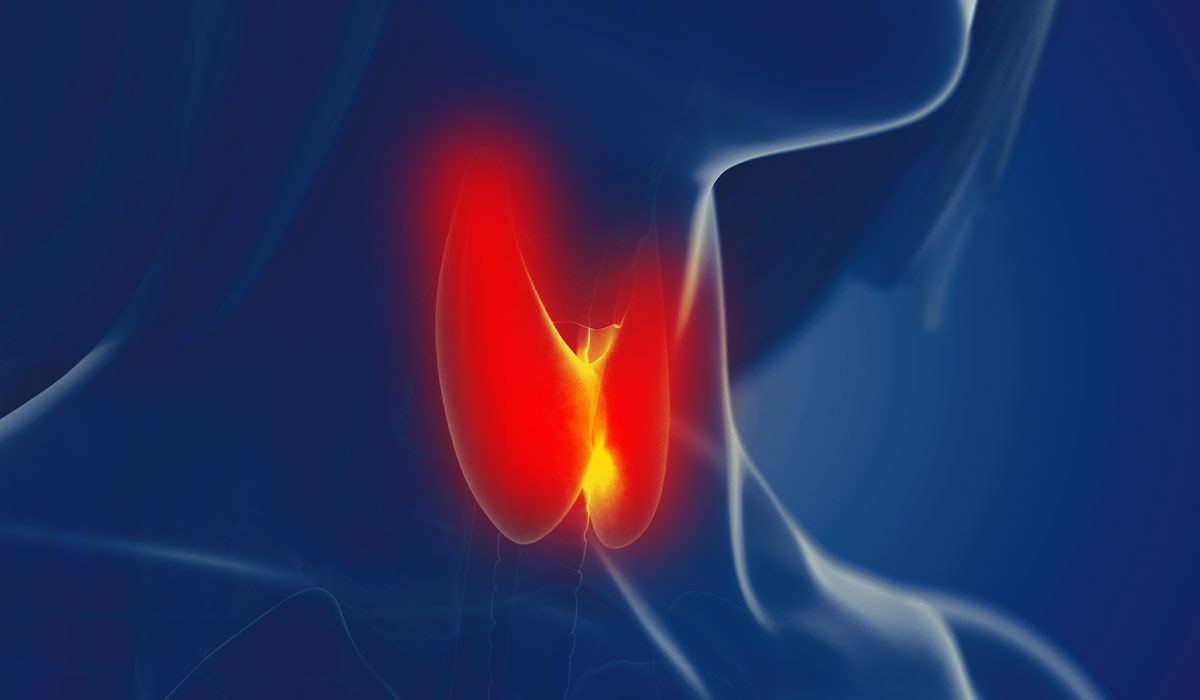
Goiter is an enlargement of this gland. It is not a disease itself, but rather a symptom of a medical… read more »

Hashimoto's disease is an autoimmune disease. May cause hypothyroidism. Check what are the symptoms of Hashimoto's disease and how it… read more »
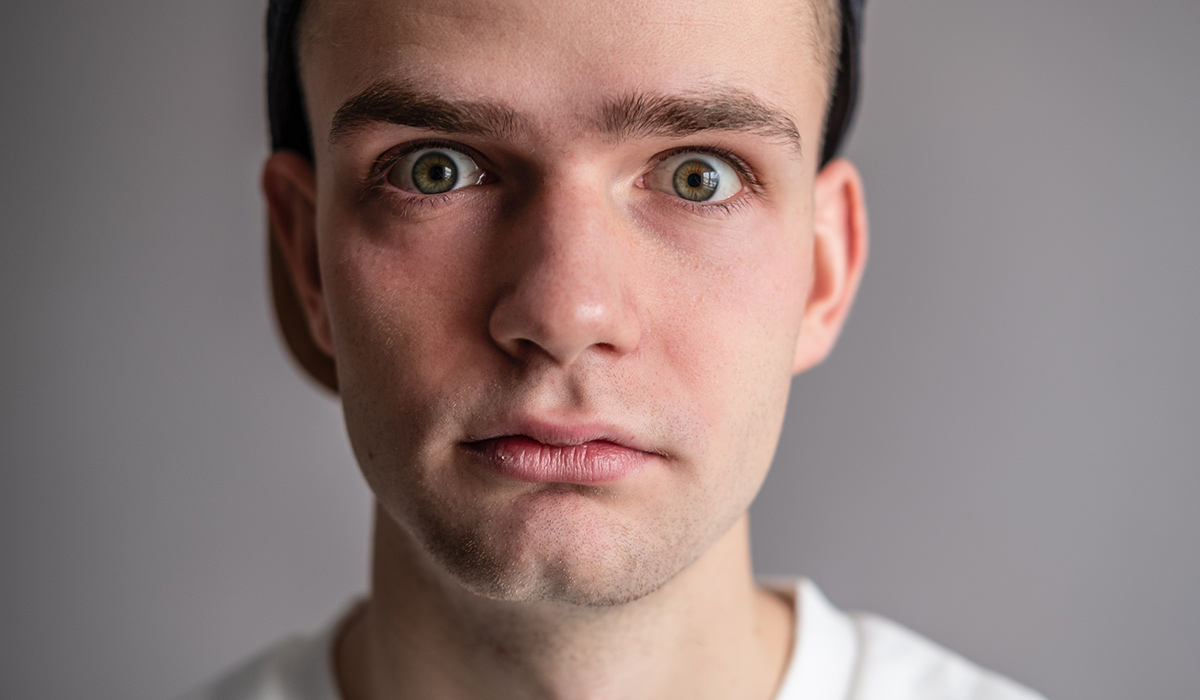
Graves' disease is one of many autoimmune diseases that affect various organs, glands, and systems throughout the human body. It… read more »
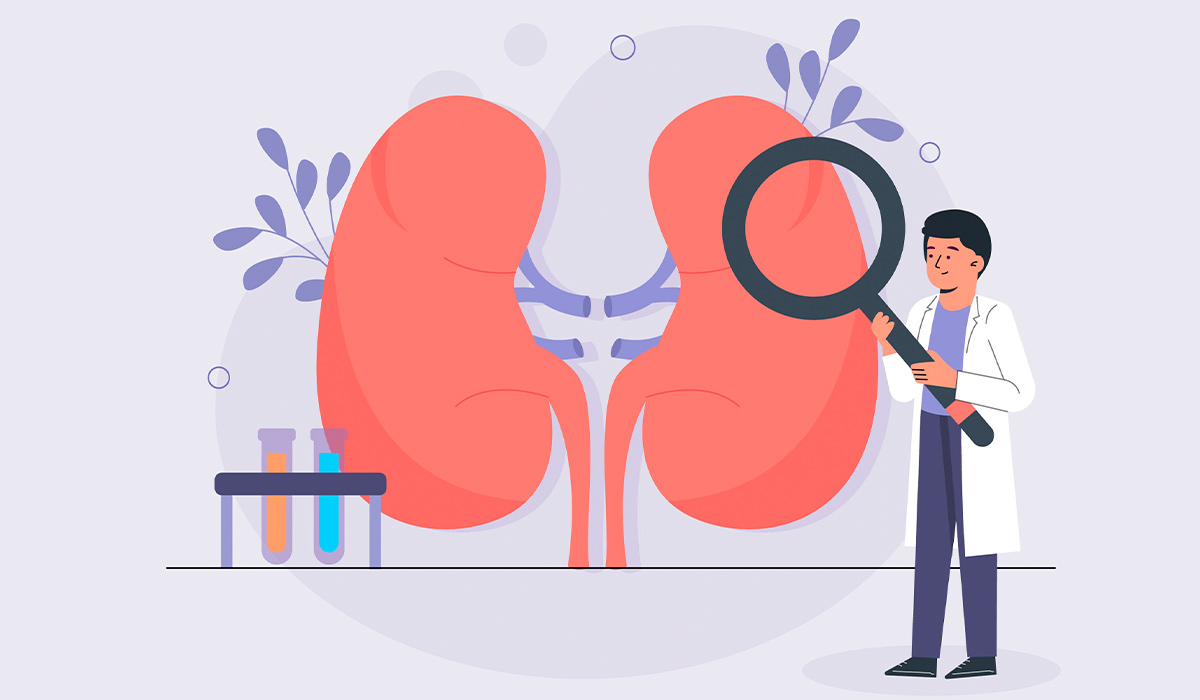
Adrenal fatigue is a medical condition in which the adrenal glands do not produce enough hormones to function properly. Check… read more »
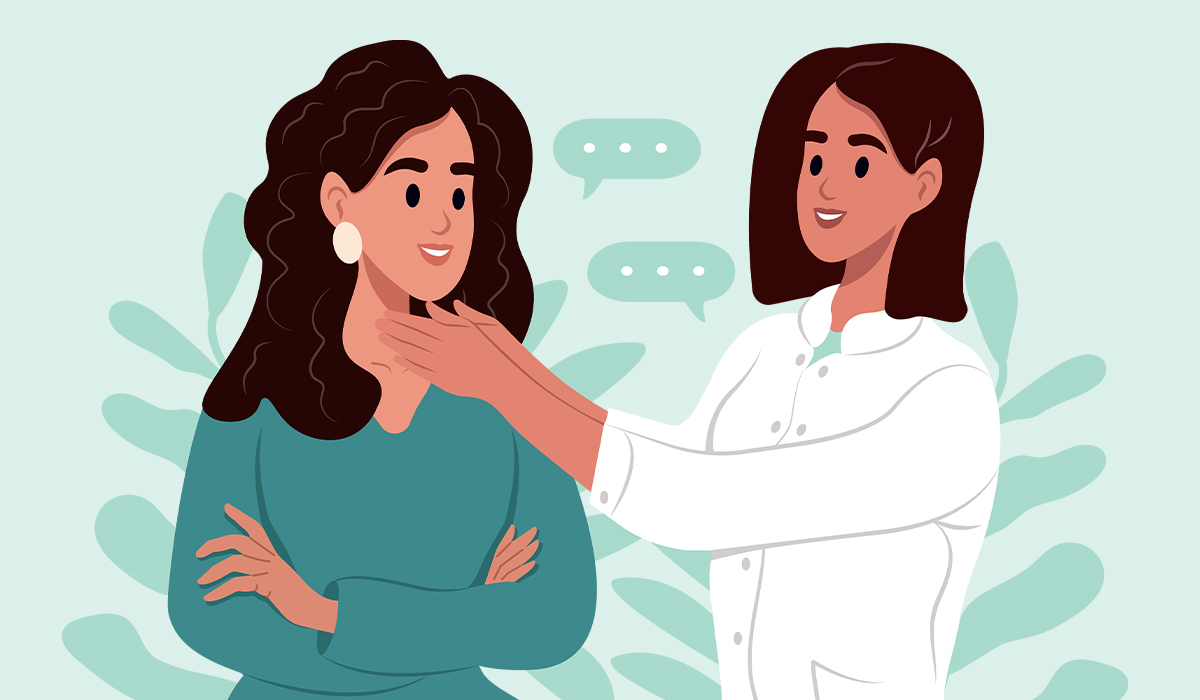
An endocrinologist is a doctor who deals with the organs that secrete hormones. Learn about diseases that are related to… read more »